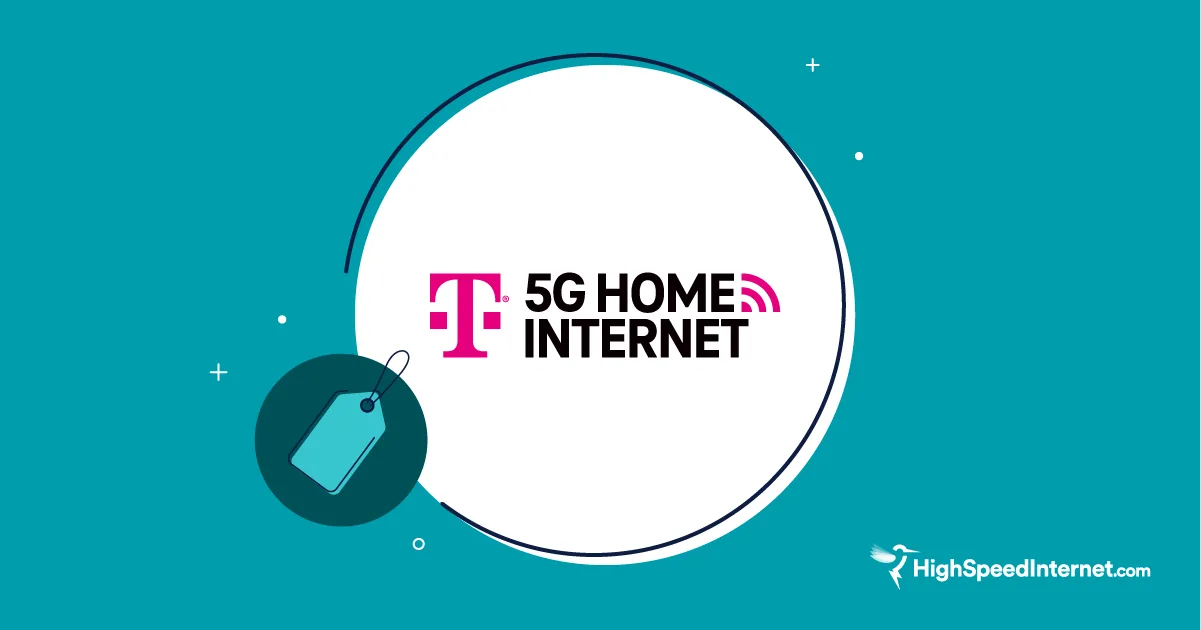Broadband Association Urges Congress to Protect Wi-Fi Airwaves
Budget bill could give Wi-Fi frequencies to mobile carriers
Jul 8, 2025 | Share
News
NCTA, a trade association representing broadband and cable television companies, has been encouraging voters to ask Congress to allocate more radio frequencies to Wi-Fi. Meanwhile, a new version of the Senate budget reconciliation bill would auction off some of the frequencies currently reserved for Wi-Fi and other unlicensed uses.
As electromagnetic spectrum licensing is a topic that requires some degree of both technical and legal literacy to understand, it’s rarely covered by mainstream news outlets. So we’re going to give you the basics of what the debate is and how it could impact you.
How does spectrum licensing work?
All wireless communications use radio waves of varying frequencies. If you’ve ever scanned through different AM or FM radio stations in your car, you’re tuning your radio to pick up different frequencies of radio waves. Stations are separated this way because two transmitters broadcasting at the same frequency will interfere with each other. This also applies to transmissions like those of your home Wi-Fi network, which is why switching frequency bands on your router can improve your network performance if there are a lot of Wi-Fi networks in your area.
Since there are only so many usable radio frequencies in the electromagnetic spectrum that we all have to share, the Federal Communications Commission (FCC) regulates its use similar to how water rights prevent people upstream from taking all the water that their neighbors downstream also need. Some frequency bands are kept for government uses like military communication, but most are auctioned off for commercial uses like mobile phones, satellite communications, and radio stations.
The FCC also allocates some frequencies as unlicensed spectrum that can be used without a license. That means anyone can go out and buy a router and set up a home network because the FCC requires that all routers sold in the U.S. use the correct frequency bands.
For licensed spectrum, the FCC auctions off licenses that grant a company exclusive rights to certain frequencies. There is often intense competition for these licenses because more frequencies means more network capacity that translates into better service and more potential customers.
What does the Save My Wi-Fi campaign want?
The Save My Wi-Fi campaign is a project by NCTA (formerly known as the National Cable & Telecommunications Association) to urge Congress to allocate more spectrum to unlicensed uses like Wi-Fi. The campaign highlights the increasing demand for Wi-Fi as households make use of more connected devices, as well as the economic benefits that Wi-Fi provides.
A recent study cited by the campaign points out the economic benefits of Wi-Fi access, including the creation of jobs to manufacture Wi-Fi devices, savings for households on their cellular data, and the elimination of the cost of physically wiring buildings for internet connections. The study also argues that if more spectrum was made available for Wi-Fi connections, these economic benefits would increase.
The fight over unlicensed spectrum is an ongoing battle, as several bills to expand those frequencies were introduced into Congress in 2014 and 2015, but failed to gain any traction. The FCC voted unanimously to expand unlicensed spectrum for Wi-Fi in 2020 to include frequencies in the 6GHz range, only to be sued by AT&T, CenturyLink, and several broadcast associations that objected to the change.
Although the FCC ultimately won that lawsuit at the end of last year, a new fight over those hard-won frequencies seems to be brewing.
What’s the current fight about?
On June 25, 2025, Senator Ted Cruz of Texas introduced updated text for the Commerce Committee’s portion of the budget reconciliation bill. Among other changes, this new version of the bill could take away some of the 6GHz band that was allocated to Wi-Fi and give it back to mobile carriers.
It’s a bit hard to keep track of the sides in this ongoing battle. The issue doesn’t fall neatly across partisan lines, and there are internet providers and tech companies on both sides.
On the side of expanding unlicensed spectrum for Wi-Fi are cable internet providers like Cox and Charter, cable television companies like C-SPAN and Fox News, media giants like Disney and Sony, along with many other non-profit organizations, lobbying groups, and tech companies.
Their main opposition has been AT&T, which is based in Senator Cruz’s home state of Texas, often joined by other internet companies and broadcasters.
What does this mean for internet users?
The average internet user will only be impacted by the outcome of this fight indirectly, but it will have significant implications for the future of how we interact with the internet. For example, the addition of the 6GHz band allows Wi-Fi 7, the most recent Wi-Fi standard, to massively increase the speed of wireless networks. Allocating more of the electromagnetic spectrum to Wi-Fi will support these improvements in Wi-Fi routers, while taking spectrum away could do the opposite.
On the other hand, cellular networks might be able to improve the quality of their service if they can get more spectrum licenses, though there’s no guarantee that AT&T or any other provider would necessarily be the one to win those auctions if Congress takes those frequencies away from Wi-Fi.
Personally, since my phone plan is through an MVNO, I almost never connect to a cellular network. Nearly all of my calls and data come over Wi-Fi, so I would definitely see the most indirect benefit from designating more unlicensed spectrum.
Regardless of which side you fall on, it’s important to remember that the electromagnetic spectrum is a public good. While internet providers might pay billions of dollars for exclusive licenses, that doesn’t mean they own the spectrum—we do. And we have every right to tell our elected officials what we want done with it.
Author - Peter Christiansen
Peter Christiansen writes about telecom policy, communications infrastructure, satellite internet, and rural connectivity for HighSpeedInternet.com. Peter holds a PhD in communication from the University of Utah and has been working in tech for over 15 years as a computer programmer, game developer, filmmaker, and writer. His writing has been praised by outlets like Wired, Digital Humanities Now, and the New Statesman.
Editor - Jessica Brooksby
Jessica loves bringing her passion for the written word and her love of tech into one space at HighSpeedInternet.com. She works with the team’s writers to revise strong, user-focused content so every reader can find the tech that works for them. Jessica has a bachelor’s degree in English from Utah Valley University and seven years of creative and editorial experience. Outside of work, she spends her time gaming, reading, painting, and buying an excessive amount of Legend of Zelda merchandise.




